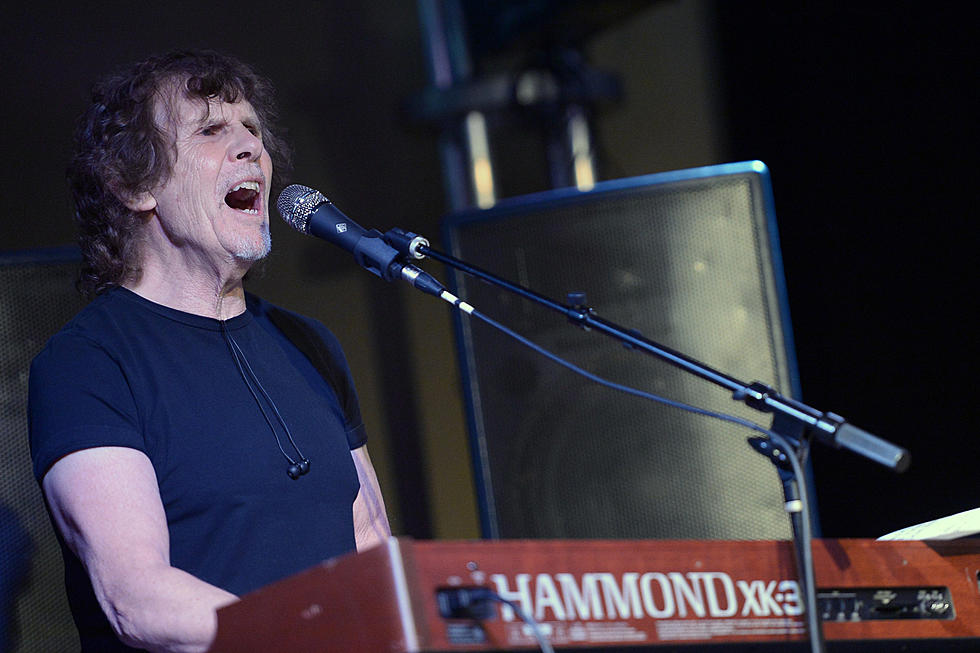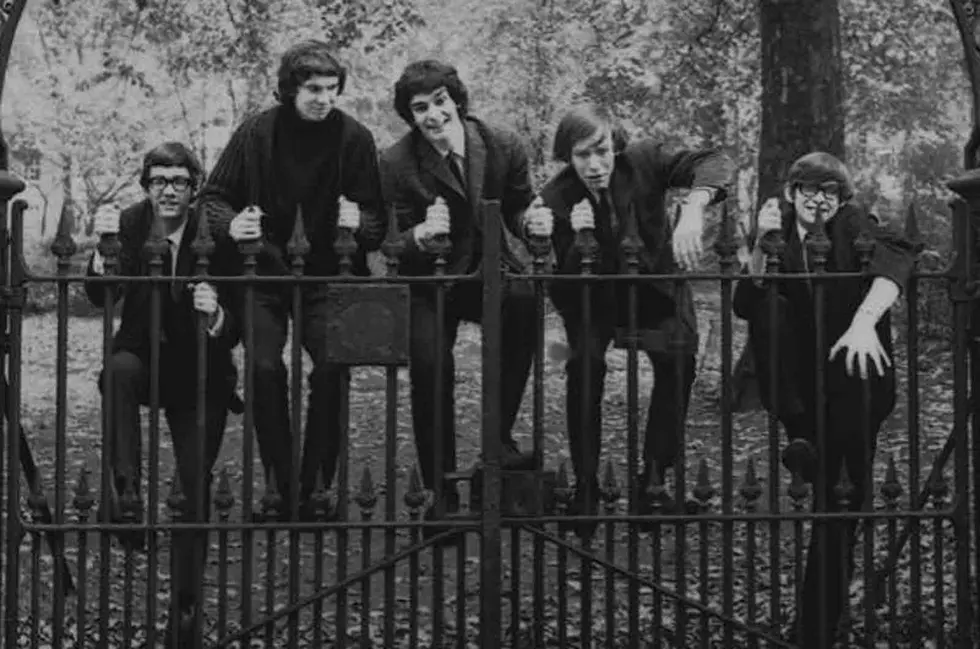
50 Years Ago: Why Two Members of ZZ Top Pretended to Be the Zombies
The Zombies had already broken up by the time they notched their final big hit, 1969's "Time of the Season." That's how two future ZZ Top co-founders ended up masquerading as the British psych-rock band for a cash-in tour.
An unscrupulous promoter assembled the group, dubbed the Original "Zombies," around Dusty Hill and Frank Beard — though they used made-up names on promotional material. Mark Ramsey and Sebastian "Seab" Meador, both local Dallas musicians, rounded out the lineup. The real band scattered after the failure of 1967's Odessey and Oracle, and at first no one was aware this fake lineup had hit the concert trail.
"I was told [the Zombies] didn't exist — that they were only a studio sound," Ramsey told BuzzFeed's Daniel Ralston in 2016. "I was just excited and flattered. I'd only been playing for a few years and the other guys were pro-level at that point. I didn't look at it as anything more than a chance to have some fun, hang out with some cool guys, learn some songs, go somewhere outside of this Hillbillyville, and earn a little money."
Ardent followers of the Zombies, whose Rock & Roll Hall of Fame career also included a pair of 1964 smashes in "She's Not There" and "Tell Her No," wouldn't have had trouble picking out the inconsistencies. The actual Zombies were, of course, a five piece. (Beard reportedly told anyone who asked that the missing keyboardist was stuck in jail after getting busted.) And nobody, of course, wore cowboy hats.
Plenty of people were none the wiser in a very different pre-internet age, however, and interest was sky high after the Zombies' U.S. label decided to release "Time of the Season" as a last-ditch effort at salvaging the band's career. If anyone questioned them, Delta Promotions — a once apparently reputable Bay City, Mich.-based company that managed Question Mark and the Mysterians — reportedly said they'd legally acquired the Zombies' catalog of songs.
"In those times, I don't think anybody even knew what we looked like," Zombies frontman Colin Blunstone told CBC in 2017. "We had this huge hit record and there was no band. It's not an ideal situation, but I'm not going to come down too hard on anybody who filled the vacuum."
It wasn't easy. The hoaxers were playing every single night, and only taking home around $200. Promoters either didn't know about the ruse, or didn't care. "When they were told, 'Here's the Zombies,' they bought it," former Delta Promotions employee Tom Hocott told BuzzFeed. "Even the strange parts, like the fact that they were touring without a keyboardist." Eventually, at least two other imitation Zombies were playing U.S. venues, as well.
These weren't Madison Square Garden shows. The Texas impostors began in small Michigan and Wisconsin clubs, then went into Canada. Along the way, they even played a prison. "I can't remember how we got the gig," Dusty Hill told Ralston, "but I remember a stage hand, an inmate, who was joking about escaping in my guitar case."
A review of a show in late June 1969 sums up both their struggles to replicate the Zombies' polished sound and the general public's stunningly credulous response: "The band was especially disappointing and the crowd began to leave during their fourth tune," the Saginaw News reported at the time. "The band didn't sound like they did back when they were selling millions of records, likely due to what appeared to be a complete transition of band members. When their 40-minute set was finally finished, there was no applause — nothing but dead silence."
Ramsey felt those kind of descriptions were unfair. "Were we perfect? No, and we weren't the Zombies," he told Ralston. "We were a blues-rock band from Texas, a band with plenty of good looks — better than the original Zombies."
He'd first encountered Meador when his new bandmate's Texas blues band, the Gentlemen, played a school-sponsored show. Ramsey met Beard later, reportedly at a Pizza Inn in Fort Worth. Exactly how this group — plus Beard's future ZZ Top bandmate Dusty Hill — became the Original "Zombies" has, to some degree, been lost to the ages. "Frank," Ramsey told Buzzfeed, "was the one who approached me." He seemed to remember that an acquaintance of Meador's introduced them to someone with Delta Promotions, perhaps company partner Jim Atherton. Hill could recall even less, saying only: "It was the '60s, man."
When it came time to put together promo shots for the tour, Ramsey and Meador were listed under their given names, while the ZZ Top guys chose the pseudonyms D. Cruz and Chris Page. "You'll notice both Dusty and Frank are using stage names," Ramsey told Ralston. "So, it's almost like they knew something was wrong here. Seab signed his real name like me — probably because, like me, he didn't think we were doing anything wrong."
The actual Zombies eventually took notice. Co-founding bassist Chris White tore into the fake groups in a December 1969 edition of Rolling Stone, accusing them of "taking money from our fans and dragging down our reputation." At one point, White said they "had the cheek to phone up [the label] in Dallas and ask for $1,000 in publicity money" — an allegation that Hill later denied.
The Rolling Stone article, which was headlined "The 'Zombies' Are a Stiff," included details of a stunning phone call between an anonymous White and the manager of one of these counterfeit groups.
"So, the manager told him this story about how they were all huge fans of the Zombies," Blunstone told the Florida Weekly in 2019, "and since the lead singer was killed in a car crash, they wanted to honor him and the band by keeping the music going — and that's why they were playing [under our name]. Then, Chris White told him he was the Zombies' bass player and that the lead singer wasn't in a car crash. Reading this in print, it was almost like reading my obituary when I was 22 years old."
The Zombies declined to reform, primarily because keyboardist Rod Argent had already moved on with a new group called Argent. His old band wouldn't release another studio effort together until the turn of the '90s. Still, the backlash only grew as Delta Promotions' fraudulent business practices — they were also touring sham versions of the Animals and the Archies — became more widely understood.
Don Kirshner, a famed promoter and tough-as-nails businessman, owned the rights to the Archies. His threat of legal action apparently sent the principals at Delta scrambling. A subsequent headline in Michigan's Bay City Times said: "Band Promoter Quits, Blasts DJs, Mafia." Argent said he heard one of the imitation bands was also threatened by an angry gun-wielding fan.
Meador ended up recording two RCA albums with the Werewolves before being felled by a brain tumor in 1980. Ramsey went back to school, where he studied to become a teacher. Within a matter of weeks, Hill and Beard had joined with Billy Gibbons to form ZZ Top, leaving the Original "Zombies" to history's dustbin.
Ultimately, the actual Zombies had no ill will. In fact, Rod Argent cracked a joke: "When we finish our tour, we have to go out as a ZZ Top tribute band and repay the compliment," he told the Toronto Star in 2017.
Blunstone even admitted that it might have been intriguing to see Beard and Hill in that embryonic setting. "Hopefully, it helped pave the way to the huge success they had later on," he told the CBC. "I'd be more concerned with them not being very good. If they were good, even better than us, I could quite get into that, I think."
See the Zombies Among the Top 100 Albums of the '60s
You Think You Know ZZ Top?
More From 92.9 The Lake









